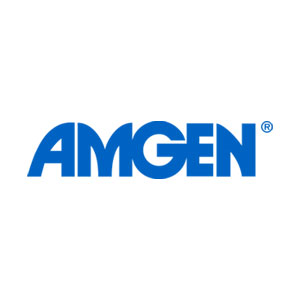Postdoc on Modelling & Simulation at Amgen
Dr. Pablo Rolandi has announced an opening for a Postdoctoral Fellowship position in modelling and simulation has been announced, at their Cambridge, Massachusetts site. The position is in the Digital Integration and Predictive Technologies department at Amgen with the topic on “advanced computational modeling techniques for risk analysis and quantification based on equation-based, mechanistic and data-driven mathematical models of processes, products and devices.” Interested applicants must have a PhD at the time of the appointment and can apply through the following link, with Job ID R-107579 [https://careers.amgen.com/job/11908918/postdoctoral-fellow-modeling-simulation-cambridge-ma/].
Dr. Rolandi writes to us with the following additional details about the appointment:
Risk-based assessments are an integral part of drug/device Process Development methodologies in the biopharmaceutical industry. Conventional risk assessment techniques are mostly heuristic and subjective, and they give rise to largely qualitative assessments. Calculation of risk probabilities, which are particularly important for rare yet serious incidents, is difficult to accomplish in practice. These factors combined lead to lack of reliability and increased design and/or operating/manufacturing costs. The need for more rigorous risk analysis frameworks becomes more important as available data sets are scarce or platform knowledge is not available, and first-principles models fill this empirical gap, or, conversely, where data is abundant and enables the creation of sophisticated multi-factor and multi-feature machine-learning models.
The candidate will develop and apply mathematical modeling techniques transform risk assessments from a qualitative methodology to a semi- or fully-quantitative one. The research will exploit first principles modeling, machine learning, uncertainty quantification and Bayesian inference to achieve the desired goal. The research will leverage existing model assets in Amgen’s Process Development organization, and benefit all functional organizations (attributes, drug substance/product, devices, chemistry manufacturing and controls). Applications will also involve different modalities (biologics and synthetics), and encompass both single unit operations or device components, as well as process systems or combination products, Quality and Regulatory Affairs are likely stakeholders too.
This research will yield a methodology for robust design of products, processes and devices with a focus on techno-economic risk, agility and reliability. Another important outcome of this work will be a faster and more reliable development of in-silico models. This research is aligned with several Process Development and Operations strategic initiatives. The researcher will collaborate with word-class investigators in this field. Manuscript publication and meeting presentations will occur immediately with the outcomes of the study.
The assignment length is expected to be 2 years long with the option to extend for 1 additional year.
Basic Qualifications:
* PhD at the time of appointment
Preferred Qualifications:
*PhD in (Bio)Chemical Engineering, (Bio)Mechanical Engineering, Applied Physics or Applied Mathematics *Publications in uncertainty quantification, Bayesian inference, surrogate modeling or mathematical programming *Proficiency in programming languages: Python and C/C++ *Familiarity with ANSYS, COMSOL, gPROMS or Pyomo *Familiarity with the Python scientific computing tech-stack (numpy, scipy, scikit-learn, NumFOCUS, etc)

